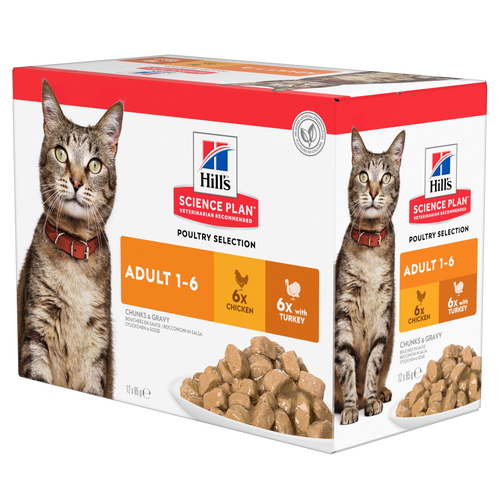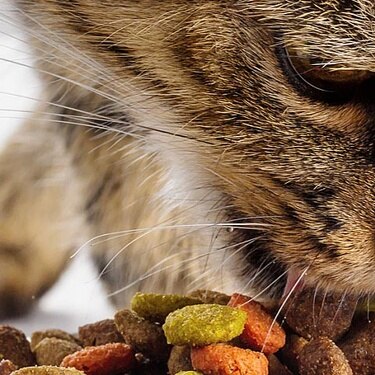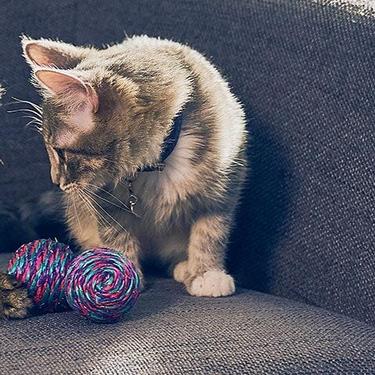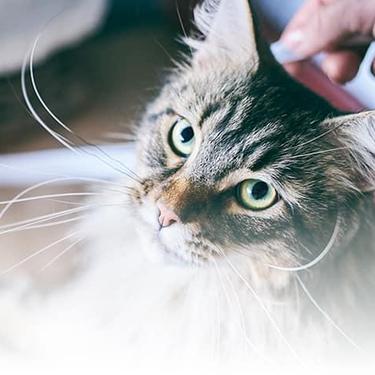
-
Find the right food for your petTake this quiz to see which food may be the best for your furry friend.Find the right food for your petTake this quiz to see which food may be the best for your furry friend.Featured products
 Mature Adult Dog Food
Mature Adult Dog FoodHill's Science Plan Mature Adult Multipack Wet Dog Food with Chicken & Beef are complete premium pet foods for mature adult dogs from 7 years. Your dog will love these deliciously smooth and savoury minced loaves, formulated to deliver the appropriate amount of energy to support the needs of adult dogs.
Shop Now Adult Wet Dog Food with Beef
Adult Wet Dog Food with BeefHill's Science Plan Adult Multipack Wet Dog Food with Chicken, Beef & Turkey are complete premium pet foods for adult dogs from 1 year. Your dog will love these deliciously smooth and savoury minced loaves, formulated for balanced nutrition and overall health.
Shop Now Puppy Food
Puppy FoodHill's Science Plan Puppy Multipack Wet Dog Food with Chicken & Beef are complete premium pet foods for growing puppies from weaning until 1 year old and for pregnant and nursing dogs. Your puppy will love these deliciously smooth and savoury minced loaves, formulated for balanced nutrition and overall health.
Shop NowFeatured products Mature Adult Wet Cat Food with Chicken
Mature Adult Wet Cat Food with Chicken
Tender chicken chunks in gravy for mature adult cats. Made with easy-to-digest ingredients, high-quality protein for lean muscle maintenance and antioxidant vitamins C+E for optimal health.
Shop Now Light Adult Multipack Wet Cat Food with Chicken & Ocean Fish
Light Adult Multipack Wet Cat Food with Chicken & Ocean FishTender chicken chunks in gravy for cats, with L-carnitine and fewer calories for ideal weight management. Packed with high-quality protein, omega-6s, and vitamin E for shiny fur and healthy skin.
Shop Now Adult Multipack Wet Cat Food with Beef, Ocean Fish & Chicken
Adult Multipack Wet Cat Food with Beef, Ocean Fish & ChickenTender chunks in gravy for cats, with high-quality protein to maintain lean muscle. With vitamin E and omega-3s & -6s for healthy skin and balanced minerals to support healthy vital organs.
Shop Now -
Dog
- Dog Tips & Articles
-
Health Category
- Weight
- Food & Environmental Sensitivities
- Urinary
- Digestive
- Joint
- Kidney
-
Life Stage
- Puppy Nutrition
- Adult Nutrition
- Senior Nutrition
Cat- Cat Tips & Articles
-
Health Category
- Weight
- Skin & Food Sensitivities
- Urinary
- Digestive
- Kidney
-
Life Stage
- Kitten Nutrition
- Adult Nutrition
Featured articles The Right Diet For Your Pet
The Right Diet For Your PetIn people, the right diet is very important. If you are eating the wrong way for your metabolism, activity level, age and lifestyle you could end up with health issues.
Read More The Incredible Science Behind Your Pet's Microbiome
The Incredible Science Behind Your Pet's MicrobiomeLearn what your pet's microbiome is, how it contributes to your pet's gut and overall health, and why nutrition is important in maintaining healthy microbiomes.
Read More Show some love with wet foods: a great choice for pets with health issues
Show some love with wet foods: a great choice for pets with health issuesShow some love with wet foods: a great choice for pets with health issues.
Read More -


As a conscious, responsible cat owner, you want to make sure your cat is eating the healthiest food possible. If you’re interested in making cat food at home, be aware that your cat has very different nutritional needs than you. A study showed that more than 90% of homemade pet foods were found to be nutritionally unbalanced and incomplete for pets.* Without the proper quantity and balance of nutrients, your cat could end up with a variety of health problems. For example, cats need a careful balance of calcium and phosphorus to ensure a healthy metabolism.**
Cats are strict carnivores, so they must have meat for protein and a source of fat, they cannot derive the same nutrients from plant-based sources that we do. To maintain a balanced diet, your cat also needs amino acids such as arginine and taurine (taurine is essential for your cat’s heart and vision), fatty acids, vitamins, minerals, and water. A modest amount of carbohydrates will provide your cat with useful energy, but too many carbs can result in obesity.
Most concerns associated with homemade cat food are with raw or undercooked meat, which can cause foodborne illnesses in you and your cat. Raw meats often contain bacteria like salmonella, listeria, and even E. coli. These serious pathogens can be passed from your cat to anyone they come in contact with; small children, the elderly, and people with compromised immune systems are at highest risk. Raw bones can also tear or obstruct your cat’s gastrointestinal tract and damage the teeth. The American Veterinary Medical Association recommends these actions to eliminate the possible health risks:


Tasty Tips
- Do not give raw or undercooked foods to your cat
- Provide fresh, clean, nutritionally balanced and complete food
- Throw away uneaten food at least daily
- Thoroughly wash your hands before and after feeding meals or treats, cleaning food dishes, and disposing of uneaten food
- Food safety is also an important factor in DIY cat food. Leaving food out for too long can result in bacteria and foodborne illness. Be sure to throw away any uneaten food in your cat’s bowl, and store the rest in the freezer to preserve its nutrients.
Substituting one ingredient for another can also deprive your cat of her essential nutrients. Nutritional requirements differ among cats of different ages, breeds and sizes, so the right portion size for your cat may be wrong for another cat.
If you considering preparing homemade meals for your cat, please consult your veterinarian first.
*Small Animal Clinical Nutrition IV Edition, page 169.
**Small Animal Clinical Nutrition IV Edition, page 310.


One of our staff authors prepared this article for you
Related products


Tender chicken chunks in gravy for cats, with L-carnitine and fewer calories for ideal weight management. Packed with high-quality protein, omega-6s, and vitamin E for shiny fur and healthy skin.

Tender chunks in gravy for cats, with high-quality protein to maintain lean muscle. With vitamin E and omega-3s & -6s for healthy skin and balanced minerals to support healthy vital organs.

Tender chicken chunks in gravy for mature adult cats. Made with easy-to-digest ingredients, high-quality protein for lean muscle maintenance and antioxidant vitamins C+E for optimal health.
Related articles

From essential vitamins & minerals to different types of meat, learn what to look for when choosing the best cat food for your feline.

Kittens grow a lot in their first year, so it is important to provide them with the proper nutrients early, so they grow up healthy and strong. Learn more.

Learn how to make homemade cat treats that are healthy for your pet with this recipe from Hills Pet Nutrition.

There are three common ways to feed a cat. Each way has its advantages and disadvantages.

Put your cat on a diet without them knowing
Our low calorie formula helps you control your cat's weight. It's packed with high-quality protein for building lean muscles, and made with purposeful ingredients for a flavourful, nutritious meal. Clinically proven antioxidants, Vitamin C+E, help promote a healthy immune system.
Put your cat on a diet without them knowing
Our low calorie formula helps you control your cat's weight. It's packed with high-quality protein for building lean muscles, and made with purposeful ingredients for a flavourful, nutritious meal. Clinically proven antioxidants, Vitamin C+E, help promote a healthy immune system.

